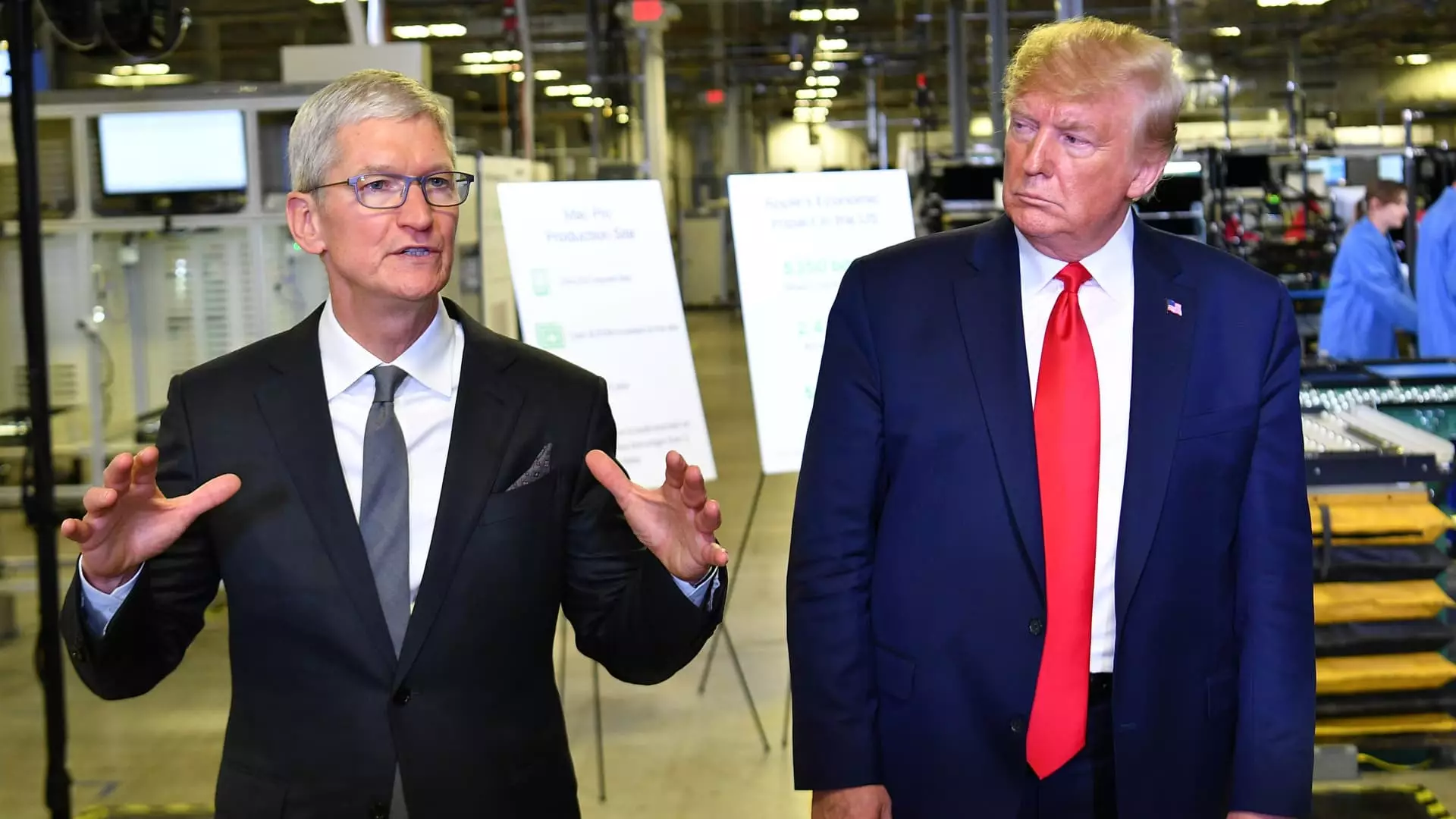When former President Donald Trump took to social media to proclaim a potential 25% tariff on iPhones produced outside the United States, he reignited a contentious debate over trade and manufacturing in America. He has publicly pressured Apple and its CEO, Tim Cook, to bring manufacturing back to U.S. soil, insisting that iPhones sold in America must not be rolled out from factories in India or China. The implications of such tariffs are staggering; not only could this lead to increased prices for consumers, but it also places Apple in a precarious position as it navigates the turbulent waters of international trade.
The tariff threat is a continuation of Trump’s disruptive trade policies which have left a significant mark on many industries over the past few years. In recent weeks, Trump hasn’t been shy about criticizing major corporations, and his latest vitriol directed at Apple represents the convergence of political theatrics and economic consequences. As shares fell nearly 2% in response to the announcement, the market is clearly reacting to the uncertainty often woven into Trump’s rhetoric.
America’s Manufacturing Mirage
It’s essential to consider the broader implications of Trump’s calls for returning manufacturing jobs to the U.S. While the notion of “bringing jobs back” may resonate with some segments of the population, the reality behind that wish is complex. Analysts warn that shifting production to the United States could inflate the price of the iPhone dramatically—potentially to an eye-watering $3,500, as expert estimates suggest. It raises the question: would American consumers be willing to pay such premium prices for a device that used to be reasonably affordable? The fabric of American consumer culture is stitched with accessibility and innovation, and pricing out the average consumer may have long-term disastrous consequences for the brand’s image.
Apple has begun moving some production to India as a strategic maneuver to sidestep unfavorable tariffs, but the pressure from Trump likely complicates these efforts. The idea that Apple should abandon their optimized supply chains and raise production costs in the name of patriotic fervor ignores the reality of global economics, where investors and consumers prioritize efficiency and affordability above all. Trump’s insistence on a singularly American manufacturing force threatens to turn a high-tech company into a political football, hamstringing its ability to adapt and thrive in a global marketplace.
The Semiconductor Quandary
Alongside tariff threats, Secretary of Treasury Scott Bessent hinted at a larger initiative to secure the U.S. semiconductor supply chain. The irony here is palpable; while administration officials eye Apple as instrumental in this endeavor, they fail to acknowledge that forcing domestic manufacturing upon them often acts against the interest of innovation and efficiency. Apple’s dependence on foreign semiconductors has been widely reported, and no authoritative strategy has been presented for shifting that entire ecosystem into U.S.-based facilities without severe growing pains.
Cook’s willingness to engage with the Trump administration can be interpreted in multiple ways. On one hand, shows a level of cooperation and a desire for clarity in an unpredictable trade landscape. Yet, on the other, it raises eyebrows about whether he’s compromising Apple’s fundamental ethos as a trailblazer in technology and design. Collaborating with a controversial administration may amplify short-term benefits but could distance Apple from the progressive values many of its consumers support.
The Bigger Picture: Ineffectual Posturing
Trump’s latest tariff remarks mark not just a jab at Apple, but reflect his broader trade strategy, which is often more about performance art than effective policy. The idea of punching down on a globally successful corporation while proposing steep tariffs does little more than reveal an administration that lacks a cohesive vision for how trade should operate in the 21st century.
This is a strategy reminiscent of bullying—a message of ‘toe the line or face the consequences’ that ultimately risks stifling innovation. It’s also intensely reactionary, as evidenced by Trump’s follow-up posts that threaten tariffs on the European Union. In an ever-globalizing market, the ability to create alliances and foster trade relationships is vital. Resorting to punitive measures will only serve to fracture international trade ties, resulting in a domino effect that could reverberate across various sectors, slowing advancement and destabilizing markets.
In the grand scheme, Trump’s tariff threats against Apple shine a spotlight on the blurred lines between corporate interests and political agendas. Rather than uniting Americans around the goal of American manufacturing, they perpetuate a cycle of uncertainty that could mislead consumers, investors, and innovators alike. When a brand like Apple, synonymous with creativity and progress, becomes a scapegoat for political maneuvers, the implications for American industry could be staggering.

